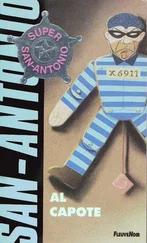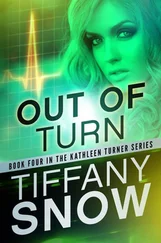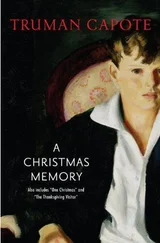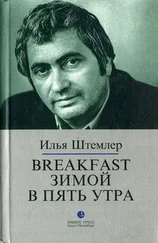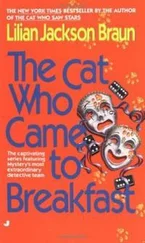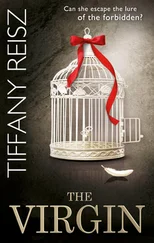Truman Capote - Breakfast At Tiffany's
Здесь есть возможность читать онлайн «Truman Capote - Breakfast At Tiffany's» весь текст электронной книги совершенно бесплатно (целиком полную версию без сокращений). В некоторых случаях можно слушать аудио, скачать через торрент в формате fb2 и присутствует краткое содержание. Год выпуска: 1958, Жанр: Современная проза, на английском языке. Описание произведения, (предисловие) а так же отзывы посетителей доступны на портале библиотеки ЛибКат.
- Название:Breakfast At Tiffany's
- Автор:
- Жанр:
- Год:1958
- ISBN:нет данных
- Рейтинг книги:4 / 5. Голосов: 2
-
Избранное:Добавить в избранное
- Отзывы:
-
Ваша оценка:
- 80
- 1
- 2
- 3
- 4
- 5
Breakfast At Tiffany's: краткое содержание, описание и аннотация
Предлагаем к чтению аннотацию, описание, краткое содержание или предисловие (зависит от того, что написал сам автор книги «Breakfast At Tiffany's»). Если вы не нашли необходимую информацию о книге — напишите в комментариях, мы постараемся отыскать её.
Breakfast At Tiffany's — читать онлайн бесплатно полную книгу (весь текст) целиком
Ниже представлен текст книги, разбитый по страницам. Система сохранения места последней прочитанной страницы, позволяет с удобством читать онлайн бесплатно книгу «Breakfast At Tiffany's», без необходимости каждый раз заново искать на чём Вы остановились. Поставьте закладку, и сможете в любой момент перейти на страницу, на которой закончили чтение.
Интервал:
Закладка:
Breakfast at Tiffany's
Truman Capote, 1958
I am always drawn back to places where I have lived, the houses and their neighborhoods. For instance, there is a brownstone in the East Seventies where, during the early years of the war, I had my first New York apartment. It was one room crowded with attic furniture, a sofa and fat chairs upholstered in that itchy, particular red velvet that one associates with hot days on a tram. The walls were stucco, and a color rather like tobacco-spit. Everywhere, in the bathroom too, there were prints of Roman ruins freckled brown with age. The single window looked out on a fire escape. Even so, my spirits heightened whenever I felt in my pocket the key to this apartment; with all its gloom, it still was a place of my own, the first, and my books were there, and jars of pencils to sharpen, everything I needed, so I felt, to become the writer I wanted to be.
It never occurred to me in those days to write about Holly Golightly, and probably it would not now except for a conversation I had with Joe Bell that set the whole memory of her in motion again.
Holly Golightly had been a tenant in the old brownstone; she'd occupied the apartment below mine. As for Joe Bell, he ran a bar around the corner on Lexington Avenue; he still does. Both Holly and I used to go there six, seven times a day, not for a drink, not always, but to make telephone calls: during the war a private telephone was hard to come by. Moreover, Joe Bell was good about taking messages, which in Holly's case was no small favor, for she had a tremendous many.
Of course this was a long time ago, and until last week I hadn't seen Joe Bell in several years. Off and on we'd kept in touch, and occasionally I'd stopped by his bar when passing through the neighborhood; but actually we'd never been strong friends except in as much as we were both friends of Holly Golightly. Joe Bell hasn't an easy nature, he admits it himself, he says it's because he's a bachelor and has a sour stomach. Anyone who knows him will tell you he's a hard man to talk to. Impossible if you don't share his fixations, of which Holly is one. Some others are: ice hockey, Weimaraner dogs, Our Gal Sunday (a soap serial he has listened to for fifteen years), and Gilbert and Sullivan — he claims to be related to one or the other, I can't remember which.
And so when, late last Tuesday afternoon, the telephone rang and I heard "Joe Bell here," I knew it must be about Holly. He didn't say so, just: "Can you rattle right over here? It's important," and there was a croak of excitement in his froggy voice.
I took a taxi in a downpour of October rain, and on my way I even thought she might be there, that I would see Holly again.
But there was no one on the premises except the proprietor. Joe Bell's is a quiet place compared to most Lexington Avenue bars. It boasts neither neon nor television. Two old mirrors reflect the weather from the streets; and behind the bar, in a niche surrounded by photographs of ice-hockey stars, there is always a large bowl of fresh flowers that Joe Bell himself arranges with matronly care. That is what he was doing when I came in.
"Naturally," he said, rooting a gladiola deep into the bowl, "naturally I wouldn't have got you over here if it wasn't I wanted your opinion. It's peculiar. A very peculiar thing has happened."
"You heard from Holly?"
He fingered a leaf, as though uncertain of how to answer. A small man with a fine head of coarse white hair, he has a bony, sloping face better suited to someone far taller; his complexion seems permanently sunburned: now it grew even redder. "I can't say exactly heard from her. I mean, I don't know. That's why I want your opinion. Let me build you a drink. Something new. They call it a White Angel," he said, mixing one-half vodka, one-half gin, no vermouth. While I drank the result, Joe Bell stood sucking on a Tums and turning over in his mind what he had to tell me. Then: "You recall a certain Mr. I.Y. Yunioshi? A gentleman from Japan."
"From California," I said, recalling Mr. Yunioshi perfectly. He's a photographer on one of the picture magazines, and when I knew him he lived in the studio apartment on the top floor of the brownstone.
"Don't go mixing me up. All I'm asking, you know who I mean? Okay. So last night who comes waltzing in here but this selfsame Mr. I. Y. Yunioshi. I haven't seen him, I guess it's over two years. And where do you think he's been those two years?"
"Africa."
Joe Bell stopped crunching on his Tums, his eyes narrowed. "So how did you know?"
"Read it in Winchell." Which I had, as a matter of fact.
He rang open his cash register, and produced a manila envelope. "Well, see did you read this in Winchell."
In the envelope were three photographs, more or less the same, though taken from different angles: a tall delicate Negro man wearing a calico skirt and with a shy, yet vain smile, displaying in his hands an odd wood sculpture, an elongated carving of a head, a girl's, her hair sleek and short as a young man's, her smooth wood eyes too large and tilted in the tapering face, her mouth wide, overdrawn, not unlike clown-lips. On a glance it resembled most primitive carving; and then it didn't, for here was the spit-image of Holly Golightly, at least as much of a likeness as a dark still thing could be.
"Now what do you make of that?" said Joe Bell, satisfied with my puzzlement.
"It looks like her."
"Listen, boy," and he slapped his hand on the bar, "it is her. Sure as I'm a man fit to wear britches. The little Jap knew it was her the minute he saw her."
"He saw her? In Africa?"
"Well. Just the statue there. But it comes to the same thing. Read the facts for yourself," he said, turning over one of the photographs. On the reverse was written: Wood Carving, S Tribe, Tococul, East Anglia, Christmas Day, 1956.
He said, "Here's what the Jap says," and the story was this: On Christmas day Mr. Yunioshi had passed with his camera through Tococul, a village in the tangles of nowhere and of no interest, merely a congregation of mud huts with monkeys in the yards and buzzards on the roofs. He'd decided to move on when he saw suddenly a Negro squatting in a doorway carving monkeys on a walking stick. Mr. Yunioshi was impressed and asked to see more of his work. Whereupon he was shown the carving of the girl's head: and felt, so he told Joe Bell, as if he were falling in a dream. But when he offered to buy it the Negro cupped his private parts in his hand (apparently a tender gesture, comparable to tapping one's heart) and said no. A pound of salt and ten dollars, a wristwatch and two pounds of salt and twenty dollars, nothing swayed him. Mr. Yunioshi was in all events determined to learn how the carving came to be made. It cost him his salt and his watch, and the incident was conveyed in African and pig-English and finger-talk. But it would seem that in the spring of that year a party of three white persons had appeared out of the brush riding horseback. A young woman and two men. The men, both red-eyed with fever, were forced for several weeks to stay shut and shivering in an isolated hut, while the young woman, having presently taken a fancy to the wood-carver, shared the woodcarver's mat.
"I don't credit that part," Joe Bell said squeamishly. "I know she had her ways, but I don't think she'd be up to anything as much as that."
"And then?"
"Then nothing," he shrugged. "By and by she went like she come, rode away on a horse."
"Alone, or with the two men?"
Joe Bell blinked. "With the two men, I guess. Now the Jap, he asked about her up and down the country. But nobody else had ever seen her." Then it was as if he could feel my own sense of letdown transmitting itself to him, and he wanted no part of it. "One thing you got to admit, it's the only definite news in I don't know how many" — he counted on his fingers: there weren't enough — "years. All I hope, I hope she's rich. She must be rich. You got to be rich to go mucking around in Africa."
Читать дальшеИнтервал:
Закладка:
Похожие книги на «Breakfast At Tiffany's»
Представляем Вашему вниманию похожие книги на «Breakfast At Tiffany's» списком для выбора. Мы отобрали схожую по названию и смыслу литературу в надежде предоставить читателям больше вариантов отыскать новые, интересные, ещё непрочитанные произведения.
Обсуждение, отзывы о книге «Breakfast At Tiffany's» и просто собственные мнения читателей. Оставьте ваши комментарии, напишите, что Вы думаете о произведении, его смысле или главных героях. Укажите что конкретно понравилось, а что нет, и почему Вы так считаете.
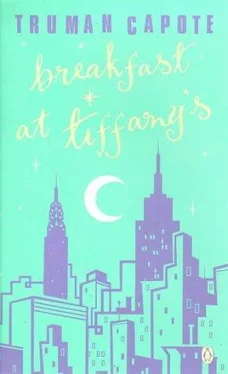
![Роберт Стайн - Дьявольская кровь на завтрак [Monster Blood For Breakfast!]](/books/27867/robert-stajn-dyavolskaya-krov-na-zavtrak-monster-thumb.webp)
